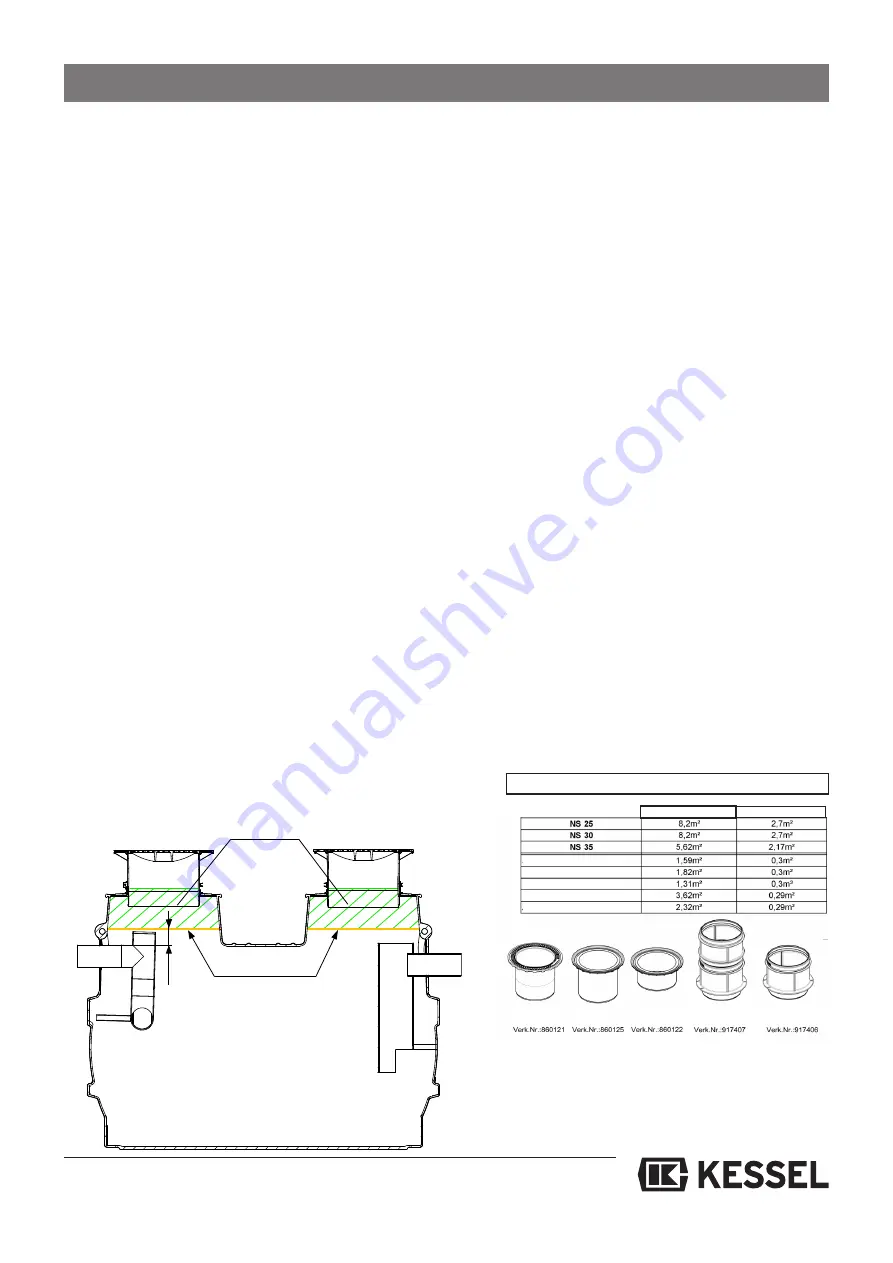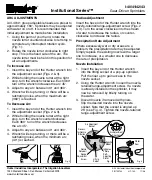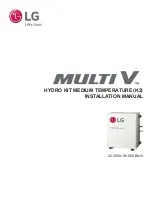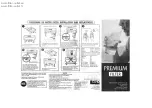
9. Maintenance (general inspection)
The Chapter “Safety instructions” must be observed!
9.1 Maintenance
•
The separator system must be maintained annually by a spe-
cialist 1).
In addition to the removal of materials, the following work must
also be carried out:
- Check of the inner wall surfaces of the sludge trap and the
grease separator,
- Functional check of the electrical devices and installations, if
fitted.
- The findings and work carried out must be recorded in the
operating logbook and evaluated.
•
If fitted, electro-mechanical assemblies such as pumps, val-
ves, shut-off devices etc. must be maintained twice yearly in
accordance with the manufacturers’ instructions.
9.2 Checking (general inspection)
Before commissioning, and then at regular intervals of no more
than 5 years, the separator system must be completely emptied
and cleaned, and then checked by a specialist 2) for proper
condition and operation.
The following points at least must be checked and recorded:
- Assessment of the separator system
- Structural condition and integrity of the separator system
- Condition of the inner wall surfaces of the installed parts and
the electrical equipment, if fitted
- laying of the feed pipe of the separator system as a ventilation
pipe over the roof
- Completeness and plausibility of the records in the operating
logbook
- Confirmation of the proper disposal of the materials removed
from the separator system
- Availability and completeness of the required approvals and
documentation (approvals, drainage plans, operating and
maintenance instructions
A checking report must be compiled on the checks performed,
noting any existing faults. If faults are discovered, these must
be rectified immediately.)
1)
A “specialist” in this sense refers to personnel of the operator
or other company, who by means of their training, skills and ex-
perience obtained from practical work, ensure that they carry
out assessments or checks in the relevant specialised field to
the required standard.
A specialist can acquire the specialist knowledge required for
the operation and maintenance of separator systems in a trai-
ning course with the following on-site instruction, which is offe-
red for example by the corresponding manufacturers, profes-
sional trade associations, chambers of commerce and expert
organisations in the field of separator technology.
2)
A “specialist” in this sense refers to personnel of business
other than the operator, experts or other institutions which de-
monstrably have the specialist skills required for the operation,
maintenance and checking of separator systems. In individual
cases, such as larger operating units for example, these checks
can also be carried out by internally independent specialists of
the operator not bound by instructions with regard to their area
of responsibility, who have equivalent qualifications and tech-
nical equipment.
Qualified bodies are specialist businesses independent of the
operator or similar institutions, whose employees demonstrably
have the specialist skills required for the operation, maintenan-
ce and checking of separator systems to the extent specified
here, together with the technical equipment for the checking of
separator systems.
In individual cases, such as larger operating units for example,
these checks can also be carried out by internally independent
specialists of the operator not bound by instructions with regard
to their area of responsibility, who have equivalent qualifications
and technical equipment.
9.3 Density check
1
0
0
Wasseroberfläche
benetzte Oberfläche
=
innere Wandoberfläche
des Behälters
Water surface
Grease Separator for undergrond installation
moistened surface
Water surface
Upper section
BEGU long
Extension long
Extension short
BEGU short
moistened surface =
internal wall surface
of the shaft
Upper section
BEGU long
BEGU short
Extension long
Extension short
KESSEL recommends, in order to to facilitate leak
tightness tests (placement of shut-offs), to incorpo-
rate a revision chamber shortly before the separator.
37
















































